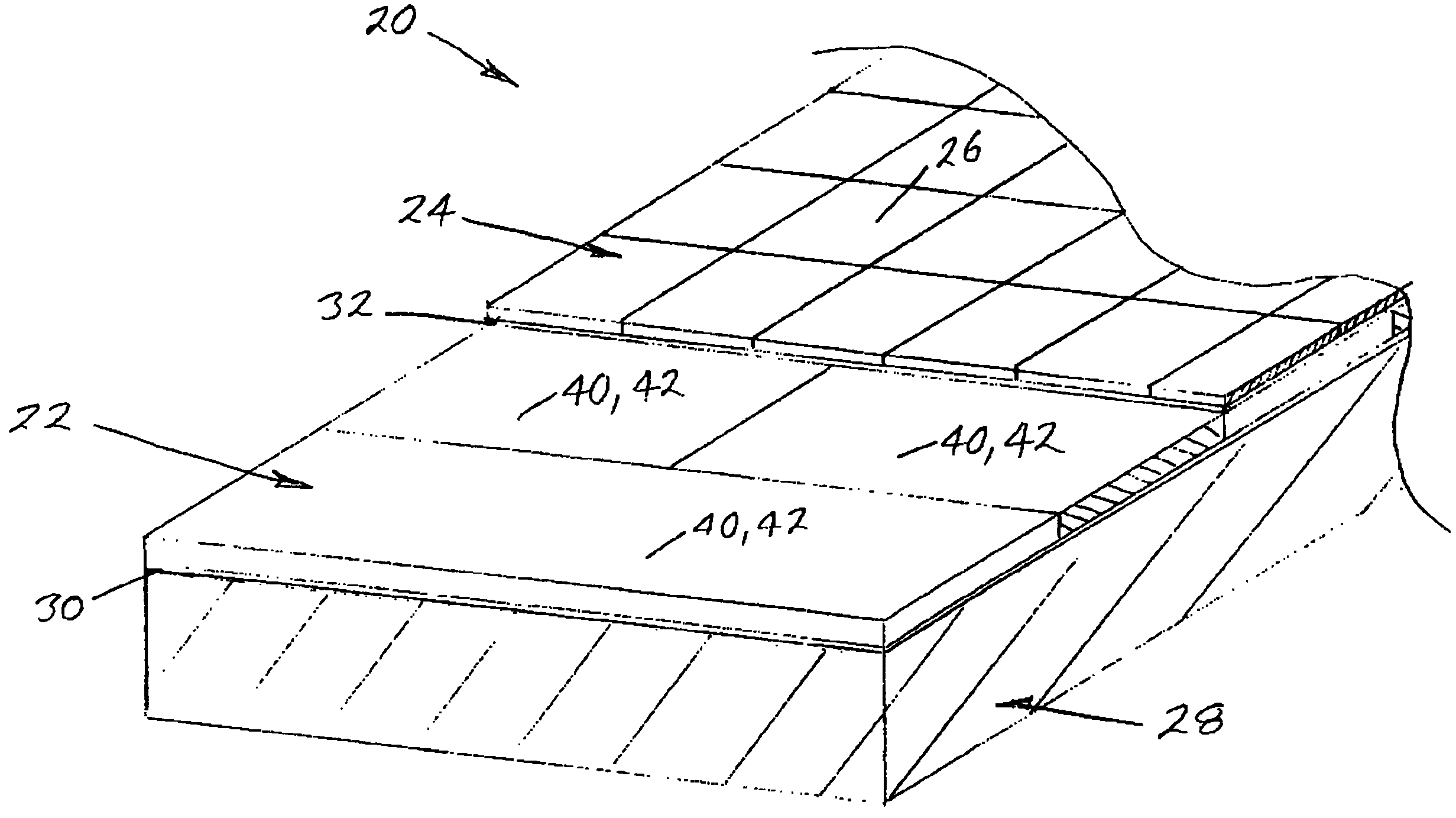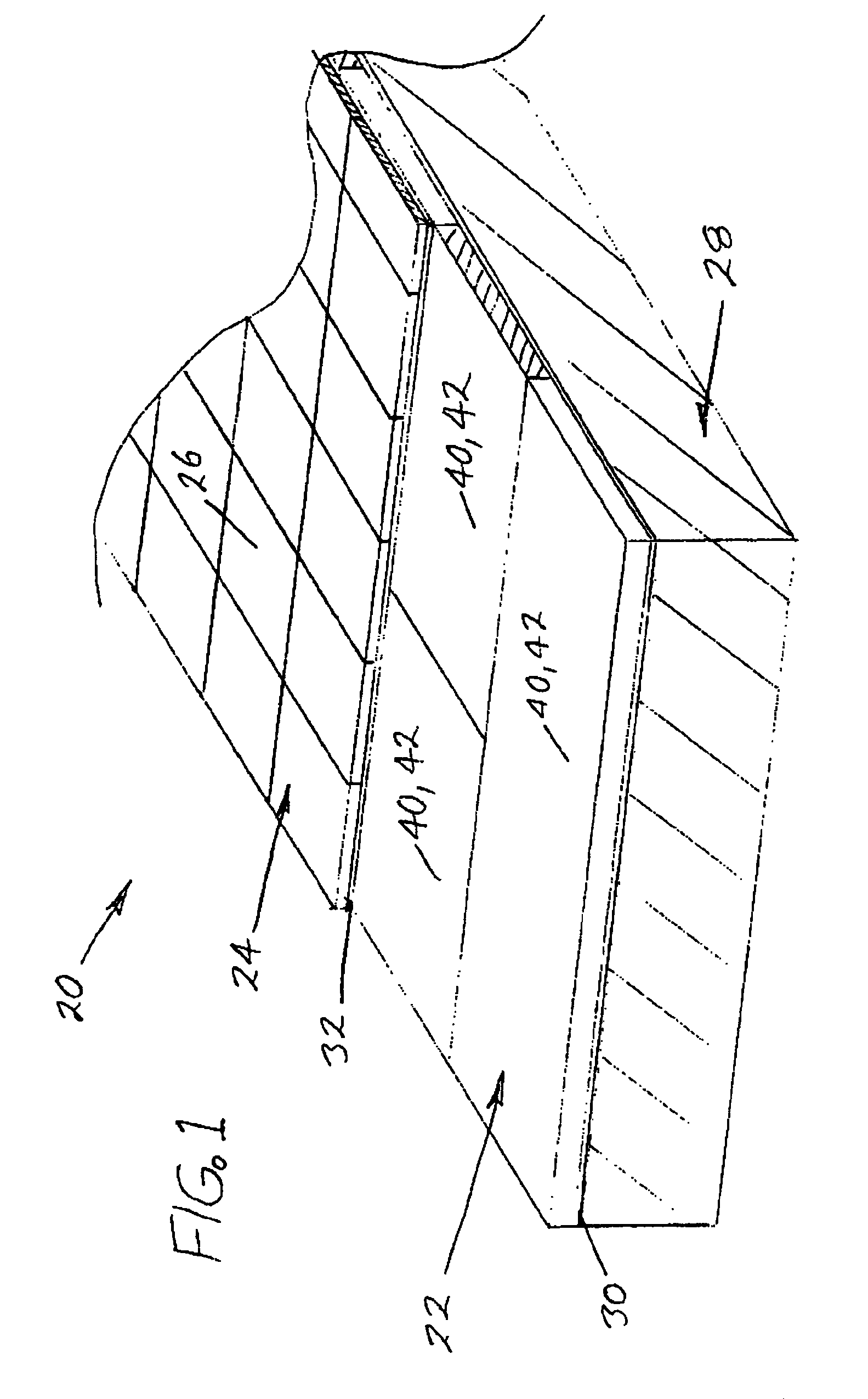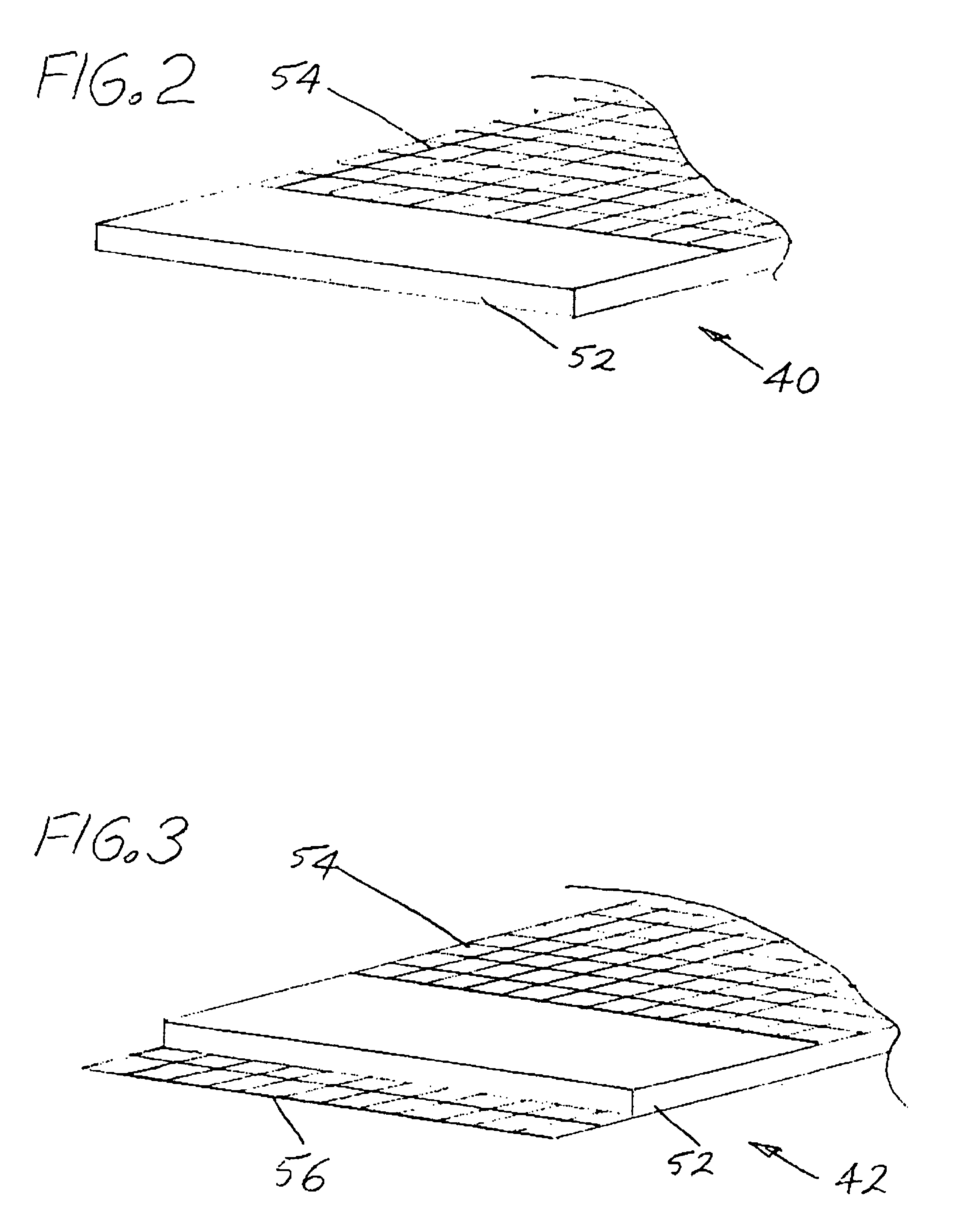Polymer-based composite structural underlayment board and flooring system
a technology of structural underlayment and polymer-based composites, which is applied in the direction of building repairs, transportation and packaging, synthetic resin layered products, etc., can solve the problems of the service life of the flooring system, and achieve the effects of good dimensional stability, easy handling, and light weigh
- Summary
- Abstract
- Description
- Claims
- Application Information
AI Technical Summary
Benefits of technology
Problems solved by technology
Method used
Image
Examples
Embodiment Construction
[0008]As schematically shown in FIG. 1, the flooring system 20 of the subject invention includes an underlayment layer 22 formed by a plurality of the polymer-based composite structural underlayment boards 40 or 42 of FIGS. 2 and 3 and a nonstructural finish-flooring layer 24. While the nonstructural finish-flooring layer 24 may be made of other nonstructural finish-flooring materials such as: thin, flat or substantially flat, manmade or natural, hard, rigid stone slabs (e.g. marble slabs and flagstones such as sandstone and shale slabs), linoleum, or resilient tiles (e.g. vinyl tiles), as shown, the nonstructural finish-flooring layer 24 is formed by a plurality of hard, rigid tiles 26 (e.g. 8×8 inch or 12×12 inch ceramic tiles). The underlayment layer 22 is normally coextensive with or substantially coextensive with an upper surface of a building subfloor structure 28, such as but not limited to a concrete floor slab. The polymer-based composite structural underlayment boards 40 o...
PUM
| Property | Measurement | Unit |
|---|---|---|
| density | aaaaa | aaaaa |
| density | aaaaa | aaaaa |
| flexural strength | aaaaa | aaaaa |
Abstract
Description
Claims
Application Information
 Login to View More
Login to View More - R&D
- Intellectual Property
- Life Sciences
- Materials
- Tech Scout
- Unparalleled Data Quality
- Higher Quality Content
- 60% Fewer Hallucinations
Browse by: Latest US Patents, China's latest patents, Technical Efficacy Thesaurus, Application Domain, Technology Topic, Popular Technical Reports.
© 2025 PatSnap. All rights reserved.Legal|Privacy policy|Modern Slavery Act Transparency Statement|Sitemap|About US| Contact US: help@patsnap.com



